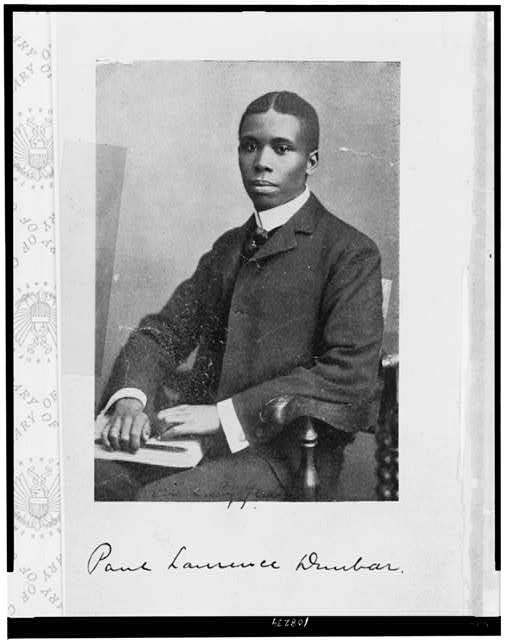In the realm of literature, few pieces resonate as profoundly and timelessly as Paul Laurence Dunbar’s poem, ‘We Wear the Mask.’ Written over a century ago, Dunbar’s words continue to echo through the corridors of human consciousness, challenging us to confront the masks we wear and the truths we conceal. As we embark on this exploration, let us journey through Dunbar’s verses and unravel the parallels between his poignant reflections and the complexities of our modern world.
“We wear the mask that grins and lies,
It hides our cheeks and shades our eyes,
This debt we pay to human guile;
With torn and bleeding hearts we smile
And mouth with myriad subtleties.
Why should the world be otherwise,
In counting all our tears and sighs?
Nay, let them only see us, while
We wear the mask.
We smile, but, O great Christ, our cries
To thee from tortured souls arise.
We sing, but oh the clay is vile
Beneath our feet, and long the mile;
But let the world dream otherwise,
We wear the mask!”
― Paul Laurence Dunbar, Lyrics of Lowly Life

The Mask We Wear
In Dunbar’s poem, the metaphorical mask serves as a symbol of the façade we present to the world—a veneer of smiles that conceals the pain, anguish, and turmoil simmering beneath the surface. As individuals, we often don masks crafted from societal expectations, personal insecurities, and the relentless pursuit of acceptance. We adorn ourselves with the trappings of success, projecting an image of happiness and fulfilment while silently grappling with our inner demons.
Reflecting on our own lives, how often do we find ourselves donning this metaphorical mask? Perhaps it’s the polite smile we plaster on during moments of discomfort or the façade of confidence we wear to camouflage our vulnerabilities. Each day, we navigate a delicate dance between authenticity and conformity, tiptoeing along the fine line between who we are and who we believe society expects us to be.
The Weight of Expectations
Embedded within Dunbar’s verses is the weight of societal expectations—an invisible force that compels us to conform to predefined norms and standards. From a young age, we are indoctrinated with societal ideals of success, happiness, and self-worth, taught to measure our lives against arbitrary benchmarks of achievement.
In the modern landscape, the pressure to conform has only intensified, fueled by the relentless gaze of social media and the curated personas we present online. We meticulously craft our digital identities, filtering out imperfections and accentuating our triumphs, all in pursuit of validation and approval. Yet, beneath the glossy veneer of our virtual personas lies a pervasive sense of insecurity, a fear of being judged or deemed unworthy by our peers.
The Illusion of Perfection
Dunbar’s poem unveils the paradox of human existence—the stark contrast between the masks we wear and the truths we conceal. Behind closed doors, we grapple with our inner turmoil, haunted by insecurities, doubts, and fears that remain hidden from public view. We yearn for connection and understanding, yet fear the repercussions of revealing our authentic selves to the world.
In our modern society, the quest for perfection has become an insatiable obsession—an endless pursuit of unattainable ideals that leave us perpetually dissatisfied. We measure our worth against unattainable standards of beauty, success, and happiness, striving to emulate the flawless façades perpetuated by mainstream media and popular culture. Yet, in our relentless pursuit of perfection, we sacrifice the very essence of our humanity—the messy, imperfect, and beautifully flawed aspects that make us who we are.
Unmasking the Truth
As we navigate the labyrinth of our own existence, Dunbar’s poem serves as a poignant reminder to peel back the layers of our metaphorical masks and embrace the vulnerability of our authentic selves. It is only through radical honesty and self-reflection that we can transcend the confines of societal expectations and reclaim ownership of our lives.
In the words of Dunbar, “We wear the mask that grins and lies, / It hides our cheeks and shades our eyes,— / This debt we pay to human guile; / With torn and bleeding hearts we smile.” Let us heed his call to authenticity, shedding the weight of pretence and embracing the liberating power of self-acceptance.
Final note
As we conclude our journey through the timeless verses of Paul Laurence Dunbar’s ‘We Wear the Mask,’ let us carry forth the wisdom gleaned from his profound reflections. In a world marred by pretense and illusion, may we find the courage to unmask our truths and embrace the full spectrum of our humanity. For it is only through vulnerability and authenticity that we can forge genuine connections, cultivate empathy, and usher in a new era of collective healing and understanding. So, dear reader, I leave you with this final question: What mask will you choose to wear, and what truths will you dare to reveal?
In pondering these questions, may we find solace in the realisation that beneath the masks we wear lies the raw, unfiltered essence of our humanity—a tapestry of joys, sorrows, triumphs, and vulnerabilities that connect us all in our shared journey of self-discovery. As we embark on the path towards authenticity, may we embrace the beauty of our imperfections and celebrate the courage it takes to unmask our truths in a world that often demands conformity. For it is in embracing our authentic selves that we find true liberation and forge deeper connections with the world around us.
Editor’s Note: This article has been carefully curated with the assistance of advanced AI technology to ensure accuracy and provide valuable insights to our readers. We strive to deliver high-quality content and appreciate your readership.